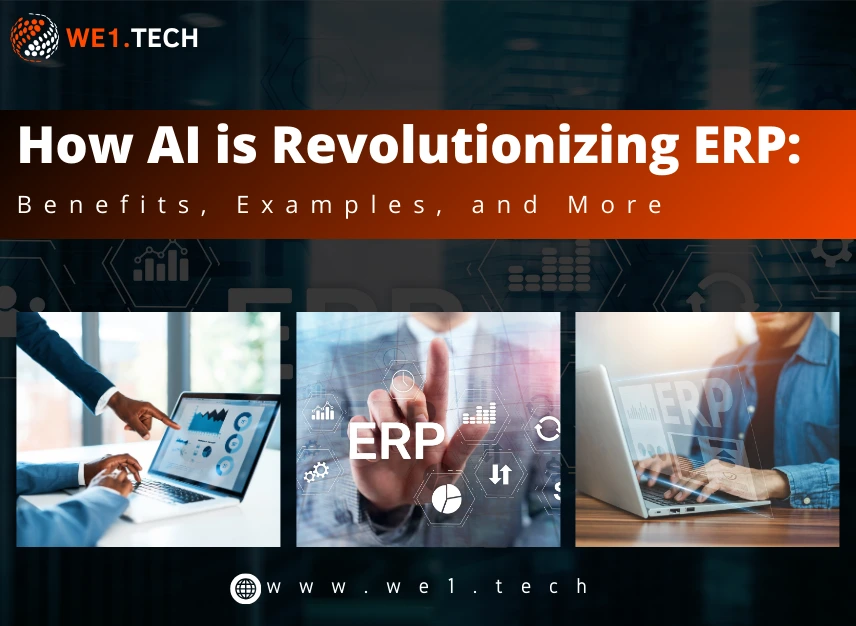
In today's digital world, enterprise resource planning (ERP) systems help businesses integrate and manage day-to-day tasks. These systems streamline operations such as finance, HR, sales, marketing, and supply chain management. However, traditional ERP solutions can be limited in their ability to handle complex processes and large volumes of data.
Artificial intelligence (AI) offers new capabilities for ERP software solutions. AI enhances ERP capabilities by automating tasks and improving decision-making. It also enables demand forecasting, increases customer satisfaction, and optimizes resource allocation.
In this blog post, we will explore how AI is transforming ERP, focusing on its benefits, examples, and more. So, let's get started!
What Is AI in ERP?
AI in ERP refers to the integration of advanced technologies into enterprise resource planning systems. This enhances the power of ERP software and enables it to perform tasks that once required human intelligence. These include data analysis, pattern recognition, and smarter decision-making.
ERP is a software solution that optimizes core business processes. These are accounting, customer relationship management, inventory management, human resources, and supply chain management. When AI is integrated into ERP, it improves its capabilities and functionalities. It can automate repetitive tasks, analyze vast amounts of data, and predict future trends.
This is because AI utilizes algorithms and machine learning models to learn from data inputs. So, with AI in ERP, businesses can study customer preferences and market trends and forecast demand. This helps them adjust production schedules or product offerings to maintain a competitive edge in the market.
Thus, AI in ERP empowers businesses to operate with efficiency and excellence. It also facilitates informed decision-making, increased customer satisfaction, and greater profitability.